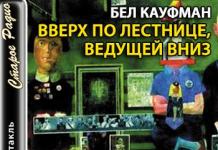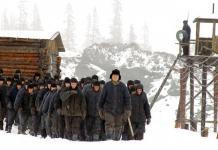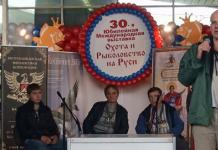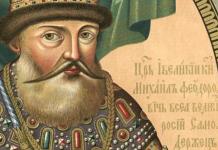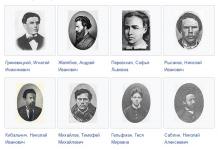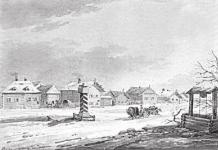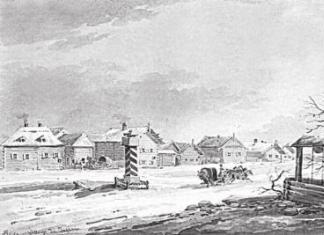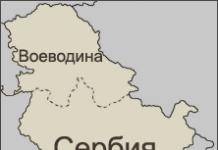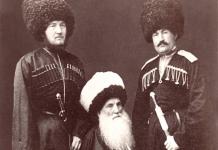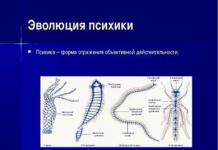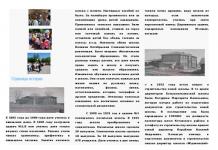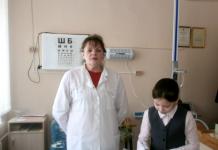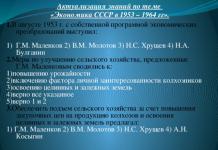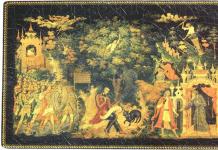Yulia Drunina is an amazing poetess, whose talent allowed her to very simply and accurately describe her own experiences, the horrors of wartime and, of course, romantic relationships. The lines of Yulia Drunina's poems turned out to be so close to every person that they still remain relevant. “The ballad of the landing”, “You are near, and everything is fine”, “Zinka”, “Autumn”, “You know” - these and other poems to this day make readers relive the feelings that the poetess put into them.
Childhood and youth
The future poetess was born in Moscow on May 10, 1924. The girl's father worked as a history teacher, and her mother worked as a librarian. Julia went to the same school where her father taught.
The girl's creative gift was revealed even in childhood: little Yulia wrote poems about love and nature, imagining a charming prince nearby and being transported in her imagination to distant countries that she had not even seen. Julia also attended a literary circle and repeatedly participated in poetry competitions.
Unfortunately, the future turned out to be not at all as cloudless as in the poems. The war made its changes to the biography of Yulia Drunina. As soon as she graduated from school, the girl signed up as a volunteer in the sanitary squad. Julia had to hide information about her age, lying that she had already reached the age of majority.
The girl was sent to work as a nurse in an eye hospital. The harsh time dictated its own rules: in addition to direct duties, doctors and orderlies helped voluntary detachments build defensive structures. Some time later, Yulia Drunina was wounded at the front.
Having recovered, the girl entered the School of Junior Aviation Specialists. Upon completion, went to Far East to the assault squad. There, Julia was overtaken by the news of the death of her father. Drunina went to the capital for the funeral. The girl did not return to the Far East, having achieved a transfer to the western front.
So Yulia Drunina ended up in the Belarusian Gomel, joining the rifle division. Some time later, the girl was again injured. Having recovered, the girl returned to the front, fought first in Belarus, and then in the Baltic states. In 1944, due to a severe shell shock, Yulia Drunina was declared unfit for military service. The girl returned to Moscow.
Literature
The war left an indelible mark on the soul of Yulia Drunina. Fear, unspeakable grief and constant deprivation - this girl will express in numerous poems about the war.
“I do not come from childhood - from the war,” Drunina writes.
In the capital, the girl began to attend lectures at the Literary Institute. Entrance exams Drunina did not give up, but the poetess was allowed to remain a free listener. Already at the beginning of 1945, the first adult poems by Yulia Drunina appeared in the Znamya magazine, and three years later, in 1948, the first book was published under the title In a Soldier's Overcoat.

In 1947, Yulia Drunina was officially admitted to the Writers' Union. This was not only a recognition of the talent of the poetess, but also supported Yulia financially.
Drunina's next book was published in 1955. It was a collection called "A Conversation with the Heart." Soon the books “Wind from the Front”, “Contemporaries” and “Alarm” appear. Poems instantly became popular, touching lines turned out to be close and dear to every person who went through the hardships and horrors of war.

When Yulia Drunina arrived in Germany in 1967, journalists asked the poetess how she managed to maintain her femininity after what she had to endure. Julia answered with dignity, emphasizing that it was for this femininity, which, in fact, is motherhood, for the sake of the peace of children, people died in the war.
In the 1970s, collections of poems "Trench Star", "Indian Summer", "I Come From Childhood" were published. Photos and poems of the poetess often appeared on the pages of newspapers and magazines. Yulia Drunina also wrote the prose story "Aliska" - a touching work about a little fox that was brought home. In 1979, Yulia Drunina published an autobiographical book "From those heights ...".

In 1990, Yulia Drunina was elected a deputy of the Supreme Council. The woman was determined to defend the rights of people who went through the Great Patriotic War, as well as the war in Afghanistan. However, the poetess soon realized, by her own admission, that the deputy position was actually useless for any practical action. After that, Yulia Drunina left the deputy corps.
Personal life
Yulia Drunina's first love fell on the war years: apparently, the girl fell in love with the division commander and even dedicated several poems to this man. Unfortunately, the name of this person is unknown, but in the poems Julia calls the idol Kombat. The fate of the military is also not known for certain, but judging by the works of Drunina, the Battalion Commander died at the front, blown up by a mine.

In 1944 in personal life Yulia Drunina opened new page: the girl met Nikolai Starshinov, also a poet. The lovers lived together for two years, and then got married. Soon, Julia and Nikolai had a daughter. The girl's name was Elena. Unfortunately, in 1960 this marriage broke up.
The fact is that Yulia Drunina met another man with whom she fell in love. Alexei Kapler, a well-known screenwriter, became the chosen one of the poetess. Julia could not hide the betrayal from her husband and asked for a divorce. Later, the woman admitted that this feeling was given from above. In 1979, Alexei Kapler died, after which Yulia Drunina could not recover for a long time.
Death
The death of Yulia Drunina was tragic. The poetess committed suicide. The trouble happened on November 20, 1991.

Everything happened after the collapse Soviet Union. The country and the ideals for which Yulia Drunina fought, what she believed in, was instantly destroyed. In one of her suicide notes, the poetess admitted that she was unable to live in a terrible new world built for businessmen.
Yulia Drunina opened the exhaust pipe in her Moskvich and locked herself in the garage. In the last note, the woman asked to be buried next to Alexei Kapler at the Starokrymsky cemetery.
Bibliography
- 1948 - "In a soldier's overcoat"
- 1955 - "Conversation with the Heart"
- 1958 - "Wind from the front"
- 1963 - "Alarm"
- 1965 - "My friend"
- 1968 - "Selected Lyrics"
- 1973 - "Aliska"
- 1977 - "Favorites"
- 1979 - "Favorites"
- 1983 - "We are faithful to our vows"
It is a great happiness to live and not be afraid of the roar of airplanes, to live and enjoy the sunny, spring days, to live and make plans for the future. And our courageous grandfathers, our heroic grandmothers won this happiness for us from the Nazis. And we must not forget about it and must do everything so that our children and grandchildren would know and remember about it, because there are fewer and fewer living witnesses to the war every year.
Everything related to the war leaves no one indifferent, but I am especially anxious about the topic of women in war. How they managed to endure all this, only they know.
By the 70th anniversary of the end of the Second World War, I talked about Zinaida Samsonova, in memory of her Yu. Drunina wrote the poem "Zinka". Read about it.
Now I want to talk about the poetess herself.
Julia Drunina - biography, poetry
Yulia Vladimirovna Drunina began writing poetry at the age of 11, as she later recalls:
"AT school years I was a priestess of pure art, I wrote only about exotic nature, about unearthly love - castles, knights, beautiful ladies mixed with cowboys, stripes, pampas ... We came to the front straight from childhood. And from my poems, immediately, like the wind, blew cowboys, and pampas, and beautiful ladies.
Of course, I did not want to end this story on the eve of the holiday on such a sad note. But that's how life is famous poetess, front-line women Yulia Vladimirovna Drunina. Close friends called her Yulechka and remembered her as uncompromising, funny, naive, touching ... and very courageous - both at the front, where she went voluntarily and later, when she made the last important decision in her life.
Crimean astronomers Yulia and Nikolai Chernykh named one of the distant planets of the Galaxy after Yulia Drunina. The light of a star flying towards us is, perhaps, the best monument to a talented woman - a poetess, a woman - front-line soldier Yulia Drunina. May her memory be blessed.
Blessed memory to all those who died defending our Motherland. A low bow and long life to all those who survived this terrible war.
Happy Victory Day to all of us! Health, happiness and a peaceful sky above your head.
Elena Kasatova. See you by the fireplace.
In conclusion, one more verse by Yulia Drunina.
May 10 would have marked the 95th anniversary of the Soviet poetess Yulia Drunina, but in 1991 she decided to die. Many trials fell on her lot, which she endured with unfeminine stamina and courage. Yulia Drunina went through the war, but could not survive in peacetime and come to terms with the collapse of the USSR.

Yulia Drunina was born on May 10, 1924 in Moscow. Her father was a history teacher, and her mother was a librarian, and she was instilled with a love of literature from childhood. She began writing poetry while still at school, in the late 1930s. Julia won first place in a poetry competition, her poems were published in a newspaper and broadcast on the radio.

June 21, 1941 Yulia Drunina, together with her classmates, met the dawn after graduation. And the next morning they learned that the war had begun. Like many of her peers, 17-year-old Yulia participated in the construction of defensive structures, went to nursing courses, and entered the voluntary sanitary squad at the District Red Cross Society. Parents did not want to let their daughter go to the front, but against their will she became a nurse in an infantry regiment.

At the front, Drunina met her first love. She never mentioned his name and surname, in the poems of this period he is referred to as "Combat". This love was very short-lived - the battalion commander soon died. Having left the encirclement, Drunina returned to Moscow, and from there she and her family went on an evacuation to Siberia. She wanted to return to the front, but her father's health was critical condition- at the beginning of the war, he survived the first stroke, and after the second in 1942 he died. After the funeral, Drunina again went to the front line.

“Corn like a boy, I looked like everyone else,” wrote the poetess. Indeed, there were a lot of people like her in the war. The girls not only carried wounded soldiers from the battlefield, but they themselves knew how to handle grenades and machine guns. Drunina's friend Zinaida Samsonova saved about 50 Russian soldiers and destroyed 10 German ones. One of the battles was her last. The poetess dedicated the poem "Zinka" to her, which became one of her most famous military works.

In 1943, Drunina was wounded, which almost became fatal for her: a shell fragment passed 5 mm from the carotid artery. In 1944 she was shell-shocked and her military service ended. After the end of the service, the poetess began attending classes at the Literary Institute, where she met her future husband Nikolai Starshinov. He later recalled: “We met at the end of 1944 at the Literary Institute. After the lectures, I went to see her off. She, a newly demobilized battalion medical instructor, walked in soldier's tarpaulin boots, in a worn tunic and overcoat. She had nothing else. We were second-year students when our daughter Lena was born. Huddled in a small room, in a common apartment, lived extremely poor, starving. In everyday life, Julia was, as, indeed, many poetesses, rather disorganized. She didn't like housekeeping. I didn’t go to the editorial offices, I didn’t even know where many of them were, and who was in charge of poetry in them.

After the war, they started talking about her as one of the most talented poets of the military generation. In 1945, her poems were published in the Znamya magazine, and three years later her collection In a Soldier's Overcoat was published. Until the end of the 1980s. she released several more collections, all the textbooks contained her poems: “Whoever says that it’s not scary in war knows nothing about war.” On her poems, Alexandra Pakhmutova wrote the songs "Marching Cavalry" and "You are near."

In 1960, Yulia Drunina divorced her husband - for several years her heart had been occupied by another person, director and TV presenter Alexei Kapler. They met in 1954 when Drunina was 30 and Kapler was 50. They lived together until 1979, when the director died of cancer. After the death of her husband, the poetess could not find new meanings for her existence. In the late 1980s, she defended the rights of front-line soldiers and even ran for the Supreme Soviet of the USSR. But very soon she became disillusioned with deputy activity, and perceived the collapse of the Drunin Union as a personal tragedy and the collapse of the ideals of her entire generation that had gone through the war.

In August 1991, the poetess came to the defense of the White House, and three months later she closed herself in her garage, drank sleeping pills and started the car. The day before her death, Drunina wrote: “Why am I leaving? In my opinion, such an imperfect creature as I can remain in this terrible, quarreling world created for businessmen with iron elbows only with a strong personal rear ... True, the thought of the sin of suicide torments me, although, alas, I am not a believer. But if there is a God, he will understand me. 11/20/91". And in her last poem there were such lines: “How Russia is flying downhill, I can’t, I don’t want to watch.”

Her poems are still relevant today:
Yulia Vladimirovna Drunina belongs to the generation of front-line poets, whose poetic development coincided with the hard times of the war. The main theme of her work is poems about the Great Patriotic War. And even though Sergei Yesenin wrote at one time: “You cannot see a face face to face. Great things are seen at a distance, ”Yulia Drunina managed to see the war. Being on the front lines, in the very hell, in the trenches, I visibly saw her terrible, truly “not female face"... And she told the readers everything that she experienced, felt and comprehended. She wrote her first poem about the war in the hospital in 1943, after being seriously wounded: a shell fragment entered her neck and got stuck near the carotid artery.
I've seen melee so many times,
Once - in reality. And hundreds of times - in a dream ...
Who says that war is not scary,
He knows nothing about the war.
Subsequently, it was included in many anthologies of military poetry. Julia Drunina told the story of its creation: “At the end of September, the division was in the ring ... Twenty-three people escaped from the encirclement and went into the dense Mozhaisk forests. I don’t know about the fate of others ... In three years, in a hospital bed, I will write a long languid poem about how this breakthrough happened ... ”. As a result of painstaking work, out of more than fifty lines, only four remained in the final version.
However, not only this poem by Drunina is distinguished by extreme conciseness, brevity, which speaks of great talent. Many of her works about the war are concise, accurate and capacious. By the intensity of feelings, by the depth of thoughts and experiences, they are not inferior to the above. Here, every poem is a small masterpiece:
The rye is swaying uncompressed.
Soldiers are walking along it.
We walk and we are girls,
Looks like guys...
In the same row, one can note the poems “Pipes. The ashes are still hot…”, “Kissed. They cried and sang…”, “Penal battalion”, “Through the gap of disguise the morning…”, “Laundry”, “Wet dawn comes…”.
In other poems of the front-line cycle, a young, aspiring poet, Yulia Drunina, reflects on the pre-war period, on a carefree school youth: “I left my childhood in a dirty car, / To an infantry echelon, to a medical platoon.” Long before the war, Julia was fond of poetry, she began writing poetry at the age of eleven. I attended a literary studio. She wrote imitative poems mainly about "unearthly" love, about the exotic nature of distant lands, about castles, knights, "beautiful ladies", cowboys, tavern bastards and other pseudo-romantic audiences. As Drunina herself recalled, it was "a cocktail of Blok, Mine Reed and Yesenin." Subsequently, motifs of youthful romantic hobbies slipped into her work: “Ah, don Quixotes, no matter how brave you are, / Your heroes are themes for witticisms. / And yet, long live the eagles, / Throwing themselves at the plane! ("Eagles"); “I yearned / For nobility - / Yes, the musketeers / Made the wrong ones ...” (“I yearned ...”). Echoes of youthful passions were reflected in military verses. In the same poem, "I left my childhood ..." she writes:
I came from school to the dugouts damp,
From beautiful lady into "mother" and "rewind" ...
Here comes another one characteristic her poetic style: the utmost sincerity, truthfulness and frankness. And how could she write otherwise, if in the attack the soldiers shouted not only: “For the Motherland! For Stalin!". When they came close in brutal hand-to-hand combat with a brutal enemy, grandiloquent speeches and slogans disappeared from the head and only the primordially Russian, deep, generic remained. This is the “mother” to “rewind” ... Here, long before the so-called perestroika “whistleblowers”, Yulia Drunina showed the ordinary trench truth of war uncovered by poster appeals, devoid of the brilliant gloss of ideology. As in the famous short poem “Zinka”: “Every day it became bitter. / We walked without rallies and banners ... "
This poem is considered one of the most the best works Drunina about the war. She dedicated it to her friend, medical instructor of the 667th Infantry Regiment Zinaida Samsonova, who died in 1944. She was posthumously awarded the title of Hero of the Soviet Union. The poem begins with a picture of a soldier's nightly halt: “We lay down by a broken spruce. / We are waiting for it to start to get lighter. / It’s warmer together under an overcoat / On the chilled, rotten earth. Two front-line friends, yesterday's tenth graders, are lying and talking. They are awake not because they don’t want to sleep, no, it’s just that you won’t fall asleep from the cold. A friend of the lyrical heroine, Zinaida, shares her innermost: “- You know, Yulia, I am against sadness, / But today it does not count. / At home, in the apple outback, / Mom, my mother lives. / You have friends, my love, / I have only one…”. The barely warmed girlfriends are raised by an “unexpected order” - “Forward!” And again - a march, cruel bloody battles. The battalion is surrounded and Zinka is killed in battle. A friend covers her body with her overcoat. The final lines sound painfully bitter when Yulia, mentally talking with her dead friend, remembers her mother:
... And an old woman in a colorful dress
I lit a candle at the icon.
I don't know how to write to her
So that she does not wait for you.
The work is written in simple, artless, without pretentious poetic bells and whistles, verse. The rhythm is a bit like the style of Nikolai Tikhonov, and the style - Alexander Tvardovsky. Drunina's images are bright, juicy, memorable: “chilled, rotten earth”, “apple outback”, “blond soldier”, “black rye”, “death frontiers”.
About the harsh truth of war, about a kind of trench justice, about duty, loyalty to the oath, about the honor of a Russian military officer - the poem "Combat". It is unlikely to leave anyone indifferent, because the author managed to convey the original essence of the "mysterious" Russian soul: harsh, uncompromising, but also kind, forgiving at the same time:
When, forgetting the oath, they turned
In battle, two submachine gunners back,
Two small bullets caught up with them -
The battalion commander always shot without a miss ...
Then in the dugout of the regimental headquarters,
Silently taking the papers from the foreman,
The battalion commander wrote to two poor Russian women,
That... their sons died the death of the brave.
And hundreds of times I read the letter to people
In a remote village, a crying mother.
Who will condemn the battalion commander for this lie?
No one dares to judge him!
At the end of 1944, having been discharged from the army after a shell shock, Yulia Drunina returned to Moscow and began attending lectures at the Literary Institute. Soon she was enrolled in the first course. At the beginning of the victorious forty-fifth, a selection of her poems was published in the Znamya magazine. In March 1947, Drunina took part in the First All-Union Conference of Young Writers and was admitted to the Writers' Union. In 1948, her first book of poems, In a Soldier's Overcoat, was published. The name came, I think, not by chance. It was a symbolic image for those times: front-line soldiers demobilized from the army, for lack of civilian clothes, continued to walk in uniform. Yulia Drunina has a poem on this topic:
I brought home from the fronts of Russia
Cheerful contempt for rags -
Like a mink coat I wore
His burnt overcoat.
And if the Russian writers of the 19th century, as F. Dostoevsky figuratively put it, came out of Gogol's "Overcoat", then the Soviet poets of the military generation undoubtedly came out of the soldier's overcoat.
But not only "contempt for rags" brought Drunin from the war, but also to human vices and shortcomings - to businessmen and opportunists who crawled into the "Temple of Poetry". “We need to drive the merchants out of the temple,” she draws an analogy with the New Testament. And again, in the first place she has an example of a military generation: “To those who went to war / At sixteen, / It is strange to become a coward / At sixty ...” (“Many are called ...”). In the poem "Trench Star" Drunina describes her return from the front to a peaceful life, into which she cannot fit in. After all, all her trench skills are not needed here at all. She does not accept petty-bourgeoisness with its arrogant “prestige” (“Petty-bourgeois fat word ...”), she is rooting for the environment and nature that is dying at the hand of an unreasonable person (“The park is thinned ...”), she sympathizes with “little brothers”, animals. The poem "The Menagerie" is indicative in this respect. “I don’t like zoos, / Like concentration camps,” Yulia Drunina admits bitterly.
She notices not only particulars, but also the global shortcomings of the system. In this regard, the large poem “In the Tundra” is very indicative, written in the form of an allegory, behind which, however, the realities of the former socialist system are clearly visible. Now it is customary to call it totalitarian. “Smyrny, like any herd: / Under the stick is not the first year. / And how many herds do you need? / Tighter to fill the stomach, ”the author describes a herd of deer that a Chukchi shepherd drives through the snow far from human habitation. But how everything is recognizable exactly, how truthfully and boldly. I can’t even believe that the poem was written in 1973.
Meanwhile, Yulia Drunina was widely published. The books were published one after another: in 1955 - the collection "Conversation with the Heart", in 1958 - "Wind from the Front", in 1960 - "Contemporaries", in 1963 - "Alarm". In the 1970s - collections: "In two dimensions", "I do not come from childhood", "Trench star", "There is no unhappy love" and others. In 1980 - "Indian Summer", in 1983 - "The Sun - for the Summer". Among the few prose works by Drunina are the story "Aliska" (1973), the autobiographical story "From those peaks ..." (1979).
After the war, new themes appeared in Drunina's work, but all of them, to one degree or another, are still connected with the past war, which for her personally will never end. “I’m always sad about my greatcoat, / I see smoky dreams - / No, they didn’t manage to / Return me from the War,” she writes with utmost frankness. The contrast and deep abyss between war and peacetime are clearly shown in the poem “Two Evenings”: “… Did you really sleep in the snow, / Attaching an automatic machine in your head? / You see, I just can’t / I can imagine you in boots! .. ”- the guy admits to the lyrical heroine. And then a completely different picture pops up before her mind's eye: snow is falling, enemy mortars are hitting. And another guy, somewhat similar to this one, pulled into a gray soldier's overcoat, says to her:
- Here we lie and freeze in the snow,
As if they did not live in cities ...
I can't imagine you
In high heels...
Yulia Drunina continues to measure everything in the long-awaited peacetime with the same front-line standards: “Protect me, reliable parapet / Desk parapet” (“Work”). “Sometimes I feel connected / Between those who are alive / And who are taken away by the war” (“Sometimes I feel connected ...”). “My cutting edge is / All my life on it / To be the one / Who is listed among the poets” (“I don’t remember the elderly in the war ...”). “I am in the army of Poetry / As a soldier / To fight to the last / I want” (“No, we didn’t dream ...”). “... They still become bandages / For the wounded, for the burned souls” (“The Old Poet”). “With an unbearable roar over me / The years crawl like tanks ...” (“I ruined my heart like a motor ...”). Even in poems about nature, the poet uses the usual front-line images: “You can’t stop autumn. / And yet / The summer will fight to the end ”(“ Today is the battle of autumn and summer ... ”); "The whistle of bird radios" ("February").
The theme of war is undoubtedly the pivotal one in Drunina's civic work, and is inextricably linked with lyrical reflections on the Motherland. But the poet has almost no poems about the so-called small homeland, where she was born and raised. She has small homeland, Moscow, organically merges with the common for all, great Motherland, Russia, for which she fought during the war years. Only Yulia Drunina could write so penetratingly about her: “Oh, Russia! / A country with a difficult fate ... / I have you, Russia, / Like a heart, alone. / I'll tell a friend, / I'll tell an enemy - / Without you, / As without a heart, / I can't live ... ". In bitter moments of breakdown and disappointment, she admits: “And where / Suddenly strength comes from / At an hour when / It’s black-black in my soul? .. / If I / Wasn’t the daughter of Russia, / I would have given up a long time ago ... ".
Love occupies an important place in her life and work. Drunina writes about her feelings with the same furious emotional anguish as about the war: “Again, the heart / It stuck to the heart - / Only with blood / Can be torn off” (“Summer smells ...”). “There is no unhappy love,” she declares in another poem, firmly believing in this and trying to convince others. – It doesn’t happen… / Don’t be afraid to get / Into the epicenter of a super-powerful explosion, / What is called “hopeless passion”. And here is another no less passionate revelation: “What they love once is nonsense, / Take a closer look at fate. / From first love to last / For everyone whole life". She is uncompromising in any circumstances, and if love passes, there is no choice for Drunina: “Loneliness is scary together, / It’s better to just be alone ...” (Two nearby quieted down in the night ...”). And here are the poignant lines from, undoubtedly, the best love poem “You are near”, dedicated to her husband Alexei Kapler:
You are near, and everything is fine:
And rain and cold wind.
Thank you my clear
For the fact that you are in the world.
After the death of her beloved husband, she experiences a terrible mental breakdown: “It’s not so easy to die, / I live, executing myself, / As you can see, / Breeding - Death - / Forgot about me ..." ("Widow").
Drunina thinks a lot about different generations, solving the age-old problem of fathers and children in her own way. But she does not oppose herself - to them, does not envy their youth, strength, beauty, capabilities. Wise with front-line experience, having grown up early, having seen life, looking into the cold eyes of death, she understands that each generation has its own destiny and its own most important task. And that is why she has such memorable lines: “And our youth went / Towards May / Through the Great War itself. / I envy the young / I don’t know - / Let them envy me!
She remains true to herself to the end, to her pre-war tastes and passions. Regardless of what is currently fashionable and prestigious. She is somewhat cold towards the enthusiasm of young people for Western pop music: “In the soul / Solemn and pure, / As if Eternal / A fire was lit in it ... / Good, / That the transistor does not scream, / But the old accordion sobs /.
Drunina, with youthful spontaneity, never ceases to be surprised at the new realities of the changed world. Looking at the oncoming modern girls, he involuntarily draws an analogy: “Were they really like that / And we were in the forty-first year? ..” (“Easy. Gypsy proudly ...”). The poet does not condemn the current generation, which already has new idols, hobbies, views and inclinations. He recalls his pre-war youth: “We ourselves were dudes / We were once known, / And the time has come - / We went to the soldiers!” (“The girl is what you need!”). Gradually, an understanding of adulthood comes to her, and although the soul cannot come to terms with it, bitter words spill out onto the paper: “Tell me, childhood, / Was it not yesterday / I walked in a coat to my knee? / And now the children of our yard / They call me with reverence "Lena's mother" ("Daughters").
It is not that she does not accept modernity, especially that alien to the military generation, which, like a thundercloud, crawled over the country from the West in the late eighties. She often does not understand her, in her soul she remains the same, wrapped in a gray army overcoat, “a fair-haired soldier”. Despite everything, Drunina was a strong and courageous person. No doubt, she was not angry at ill-wishers and enemies, which a woman with such a strong-willed, tough, one might say masculine, uncompromising character, did not get angry: “Enemies only help me - / Swearing / I always perceived / As praise.” In bitter moments of troubles and disappointments, she found the strength in herself to continue to live and enjoy life, no matter what it was: “... I never scream from pain. / As long as I live, I fight. / There is no one happier for me, / They can blow me out / They can’t, like a candle.”
And these were not just words. Her words never matched her deeds. In August 1991, Yulia Drunina, sincerely believing in perestroika, defended the White House along with others. I took the collapse of the Soviet Union with pain. But the mental breakdown occurred much earlier, back in 1979, when her beloved husband, a famous screenwriter, film director, actor and TV presenter Alexei Kapler, died. The collapse of the country and the collapse of Soviet ideals, for which her generation shed blood on the fronts of the Great Patriotic War, only added fuel to the fire.
Yulia Drunina tragically passed away by committing suicide on November 20, 1991. Before her death, she prepared the last collection of poems, with the symbolic title "The Hour of Judgment." A kind of poetic testament:
... I'm leaving, I have no strength. Only from a distance
(All the same, baptized!) I will pray
For people like you - for the elect
Keep Rus' over the cliff.
But I'm afraid that you are powerless.
That's why I choose death.
As Russia flies downhill,
I can't, I don't want to watch!
She said about herself: "I do not come from childhood, from the war ..." And it seemed true. As if there was no childhood. As if immediately - the war, the first and most vivid impression of life. Like others, love.
Yulia Drunina also had love. But the war overshadowed everything. Most of her poems are on a military theme, and this theme sparkled unexpectedly in the work of the poetess twenty, thirty, and forty years after the war. The war once awakened her soul - and stirred her memory until the last day, when the poetess herself decided that it was time to leave ...
Yulia Drunina was born on May 10, 1924, in Moscow, in an intelligent family: her father, a history teacher Vladimir Drunin, her mother, Matilda Borisovna, worked in a library and gave music lessons. They lived in a communal apartment. They lived in poverty. But the daughter from the very early years introduced to culture. The girl read a lot, her father gave her the classics, from Homer to Dostoevsky, she herself, however, was drawn to Dumas and Charskaya - they found that transcendent courage and sincerity of feelings that the classics never described as something in real life impossible. But Julia Drunina believed that everything is possible. All her generation believed. And with their lives they all proved: indeed, everything is possible ... You just need to believe in it.
Yulia did not like being a girl terribly. She was friends with the boys, played war, hated bows and all kinds of jewelry so much that one day, out of protest, she cut off a huge bow along with the ponytail on which it was tied: the family was waiting for guests and Matilda Borisovna decided to embellish her daughter, but as a result, she had to urgently lead her to the hairdresser and cut like a boy ... They didn’t tie her more bows. In general, Yulia had a difficult relationship with her mother all her life. They had a very different opinion about what a girl, a girl, a woman should be ... Matilda Borisovna believed that she was feminine, coquettish and tender, and Yulia saw her ideal cavalry girl Nadezhda Durova, and superior qualities revered boundless courage, loyalty to the oath and perseverance in achieving the goal - of course, the very high purpose which only you can choose!
In 1931, Julia entered the school. She was already writing poetry. She attended a literary studio at the Central House of Artistic Education of Children, located in the building of the Theater for Young Spectators. In the late 1930s, she participated in a competition for the best poem. As a result, the poem "We sat at the school desk together ..." was published in the "Teacher's Newspaper" and broadcast on the radio. Yulia's father also wrote poetry and published several pamphlets, including one about Taras Shevchenko. And he himself, as a poet, did not take place, did not believe in the literary vocation of his daughter. She later recalled: “And I never doubted that I would be a writer. I could not be swayed by serious arguments or the venomous ridicule of my father, who was trying to save his daughter from cruel disappointments. He knew that only a few were making their way to Parnassus. Why should I be among them?..” Unfortunately, my father did not live to see Yulia's real literary success. And she lamented about it all her life - she was still her father's daughter, not her mother's, she idolized her father ...
Like her entire generation, Yulia dreamed of exploits and desperately regretted that she herself was still so young that she could not participate in anything, it seemed to her that all the most important things were passing by: “Saving the Chelyuskinites, anxiety for Marina wandering in the taiga Raskov, the conquest of the Pole, Spain - that's what we lived in childhood. And they were upset that they were born too late ... An amazing generation! It is quite natural that in the tragic forty-first it became a generation of volunteers ... ". She was from the same generation as the Young Guard and Zoya Kosmodemyanskaya. She was just as bright, naive and initially ready for a feat and even death in the name of the Motherland, just like them. In the poem “In Memory of Klara Davidyuk”, dedicated to a radio operator who died behind enemy lines, who heroically and romantically blew herself and her mortally wounded lover with one grenade in front of a group of Nazis, Yulia Drunina wrote - well, completely, as it were, to herself:
Shyness. Turgenev braids.
Falling in love with books, stars, silence.
But adolescence by train from the slope
Suddenly rolled with a roar into the war ...
She had just graduated from high school when the war broke out. Of course, I immediately rushed to the draft board. And of course, she was simply driven away: after all, she was barely seventeen! And they took to the front from the age of eighteen. It was terribly insulting, because then, in June-July 1941, sixteen-year-olds and seventeen-year-olds were afraid that the war would end before they had time to participate in it ... Yulia envied those girls who were a year older than her, which means she could get into to the front: to medical instructors, to rifle battalions, to aviation, to radio operators.
What amazing faces
The military registration and enlistment offices saw then!
Tekla beauties of young succession<...>
They all walked and they walked -
From high school
From philologists,
From MPEI and from MAI,
color of youth
Komsomol elite,
My Turgenev girls!
She herself was a completely Turgenev girl. Book. Romantic. It seems that she did not even suspect that in life there is cruelty, rudeness, dirt ... And all this she had to sip with interest.
At the beginning of the war, on the advice of her father, she worked as a nurse in an eye hospital in Moscow. Gained experience for future work in military hospitals. Graduated from nursing courses. The Germans rushed to the capital - by the end of the summer, Yulia had to leave the hospital and go dig trenches. There, during one of the air raids, she got lost, lagged behind her detachment, and she was picked up by a group of infantrymen who really needed a nurse. Yulia knew how to bandage ... True, from childhood she was terribly afraid of blood, she felt sick at the sight of even a tiny wound ... But a Komsomol member had to cultivate an iron will in herself. And Julia coped with the fear of bloody wounds, especially since very soon she had to take a sip of much more serious dangers. The infantrymen were surrounded, they had to get out, for thirteen days they went to their own: “We walked, crawled, ran, bumping into the Germans, losing comrades, swollen, exhausted, driven by one passion - to break through! There were also moments of despair, indifference, stupefaction, but more often there was simply no time for this - all mental and physical strength was concentrated on any one specific task: to slip unnoticed by the highway, along which German cars now and then rushed, or, pressing into land, pray that the fascist, who wandered out of need into the bushes, did not find you, or run a few meters to the saving ravine while your comrades cover your retreat. And above all - panic horror, horror of captivity. For me, as a girl, it was sharper than for men. Probably, this horror helped me a lot, because it was stronger than the fear of death.
It was there, in this infantry battalion - or rather, in the group that remained from the battalion that was surrounded - Yulia met her first love, the most sublime and romantic.
In poems and in memoirs, she calls him Kombat - with capital letter. But nowhere does he mention his name. Although the memory of him carried through the entire war and kept forever. He was not much older than her... A handsome guy with blue eyes and dimples on his cheeks. Or maybe he became beautiful later, in the memoirs of the poetess, in her imagination: “... of course, my faith in the battalion commander, admiration for him, my childhood love helped. Our battalion commander, a young teacher from Minsk, really turned out to be an outstanding person. Such self-control, understanding of people and talent to instantly choose the best option in the most hopeless situation, I have never seen anyone else, although I have seen many good commanders. With him, the soldiers felt like they were behind a stone wall, although what “walls” could be in our position?
There is such a profession - to defend the Motherland ... But the young teacher from Minsk had a completely different profession - to teach children. Just like the young nurse in love with him has a completely different purpose: to write poetry. However, in 1941, the Motherland needed soldiers and nurses more than teachers and poetesses. And the young Combat-teacher suddenly turned out to be a born warrior. When only nine of them remained, they reached the German front line, and the only place where they could slip through was a minefield. And the Battalion Commander went across the field, went to mines ... Which, fortunately, turned out to be anti-tank and did not detonate from the weight of a person. Then he called for a soldier. And already at the edge of the field, when they all considered themselves safe, one of the mines turned out to be anti-personnel ... The battalion commander died and the two people who followed him also died. Julia survived. “The mine that killed the battalion commander stunned me for a long time. And then, in years, Combats will often appear in my poems ... ".
Julia ended up in Moscow again. It was autumn. Moscow was evacuated. Father - the director of the school - had to leave with the whole team and students to Siberia, to the village of Zavodoukovsk. But Yulia did not want to go, Yulia again stormed the military registration and enlistment offices, proved that she was needed at the front, that she could be at the front, because she had already been there ... But she was still not eighteen years old and no one dared to send her to front. However, Julia believed that sooner or later she would break the stupid stubbornness of her superiors.
Finally, the day came when her parents left, and she was left alone in an empty apartment. But in the middle of the night, during the bombing, her father returned and said that he would stay with her ... And Yulia gave up - the next day they left together. My father had diseased blood vessels and at the beginning of the war he had already experienced one stroke, now he was limping, his hands were trembling ... He would not have survived the second stroke. Julia went to the evacuation - to save him. But even in the evacuation, she did not part with her dream to get to the front at all costs. Father died at the beginning of 1942: he could not stand the terrible news from the fronts. He had a stroke and for several weeks he lay paralyzed, slowly fading away. Julia took care of him. And when she buried her, she decided that nothing else was keeping her in the evacuation and she had to break through to the front. She was supposed to turn eighteen only in the summer, but she left for Khabarovsk and entered the school of junior aviation specialists. Studying at school became another nightmare, a very "socially heterogeneous" team surrounded her, and she did not succeed in assembling and disassembling machine guns, although she received the first prize for literary composition. Only now the front needed people with dexterous hands, and not with good imagination... Nevertheless, Yulia was sure that sooner or later she would come in handy. And so it happened.
One day, the girls - junior aviation specialists - were announced that they were being transferred to the women's reserve regiment. The foreman with a disability, who brought them this joyful news, from his point of view, explained: “You will be there, as it should be, for us, peasants, to wash and sheathe. So congratulations! Stay alive and not crippled." Yulia Vladimirovna later recalled that she almost fainted from this news - she would have fallen if she could do it as easily as the heroines of the novels of Lydia Charskaya, so beloved by her! After all, it was not for this that she struggled and suffered for so long with the assembly and disassembly of a machine gun in order to become a laundress in a woman's battalion! The foreman, however, added, leaving: “Okromya, of course, those who, therefore, are doctors. We can't do without them right now. It hurts a lot of medicine THERE knocks out. Julia beamed, rushed off to look for a certificate of completion of nursing courses, and the very next evening, jubilantly, handed it to the same foreman. “He shrugged his shoulders and muttered: “Is young life tired?” But apparently, the doctors were really desperately needed by the Army: the very next day I received a referral to the sanitary department of the Second Belorussian Front. I ran to the Belorussky railway station, and my head was relentlessly spinning: “No, this is not merit, but luck - to become a soldier in the war for a girl, no, this is not merit, but luck ...”
She completed this poem only twenty years later:
No, this is not merit, but luck -
Become a girl soldier in the war
If my life were different,
How ashamed I would be on Victory Day! ...
“It took me more than two years to return to my dear infantry!” - Yulia Drunina lamented even after forty years. She was glad that she got to the front, she was glad that she managed to take part in great battles, but how hard it was every day, day after day ... Cold, dampness, fires cannot be lit, they slept in the wet snow, if they managed to spend the night in the dugout - this is already good luck, but still it never worked out to get enough sleep, as soon as the sister lay down - and again the shelling, and again into battle, endure the wounded, and multi-pood boots with adhering mud, long transitions, when she literally fell from fatigue, but I had to go anyway, just because I had to ... And also dirt and, as a result, boils, a persistent cold that turned into a lung disease, and hunger, because they didn’t always have time to deliver food ... “I came from school into the dugouts damp, from the Beautiful Lady to the "mother" and "rewind" ... "And this is not to mention the shelling, the daily meetings with death, the despair that seized her from the consciousness of her own helplessness, when the wounded died on her hands - sometimes you can but it would be possible to save them if there was a real hospital nearby, real doctors and instruments! But they didn’t always have time to deliver ... And also purely feminine problems, which were so often forgotten by both writers and filmmakers of the post-war period - which they simply did not suspect! “And how many times it happened - you need to take out a seriously wounded man from under fire, but there is not enough strength. I want to unclench the soldier's fingers in order to free the rifle - after all, it will be easier to drag him. But the fighter clung to his “three-line model of 1891 with a stranglehold. Almost unconscious, but his hands remember the first soldier's commandment - never, under any circumstances, drop your weapons! The girls could also tell about their additional difficulties. About, for example, how, wounded in the chest or stomach, they were embarrassed by men and sometimes tried to hide their wounds ... Or about how they were afraid to get into the sanitary battalion in dirty underwear. And laughter and sin! ..” Yulia herself once had to hide her serious injury - a fragment of an artillery shell entered the neck on the left and got stuck a few millimeters from the artery. But Julia did not suspect that the wound was dangerous, it was far from the hospital, and she simply wrapped her neck in bandages and continued to work - to save others. I hid it until it got really bad. And she woke up already in the hospital and there she found out that she was on the verge of death.
In the hospital, in 1943, she wrote her first poem about the war, which was included in all anthologies of military poetry:
I've seen melee so many times,
Once upon a time. And a thousand - in a dream.
Who says that war is not scary,
He knows nothing about the war.
She knew about the war - everything ... And then she was only nineteen. The braids, which she revered as her only beauty and cherished, despite all the difficulties of front-line life, were cut off almost to zero when she was brought unconscious to the hospital. She was terribly thin and very much like a boy. In addition, in that hospital there was no ward intended for women at all, and Yulia was in the men's room. The wounded from neighboring beds delicately turned away when the nurses came to carry out the necessary care for the seriously wounded "sister" who did not get up from the bed. In general, they were very respectful with the only girl in the ward and warned each newcomer not to think of cursing during dressings ... And the young cook, who brought food to the wounded, completely fell in love with Yulia, being sure that in front of her was a very young boy. She regretted, fed, and when she found out the truth, she awarded her a slap in the face for deceit, the initiator of which, in general, was not Yulia herself, but her neighbors in the ward.
After the hospital, she was recognized as disabled and retired. She returned to Moscow: “... leaving the metro, I saw a crowd of excited women at the stall. I was wondering what they give? The answer stunned me - a fashion magazine ... It felt like I had landed on another planet, in another dimension ... ”Julia behaved as if she had fallen into another dimension. I mean, do whatever you want. With all the money given out in the hospital, I bought a black silk dress in a commission shop. She never had that. The next day I polished my boots, put on a tunic with a medal “For Courage” over a silk dress, and went to the social security department to receive ration cards and a pension: “I’m walking, my head is bandaged, the medal tinkles. And in the back, two boys of ten years old are exchanging opinions. "Partisan!" - says one enthusiastically. I turn my nose even higher. And then I hear a remark from the second: “Her legs are like matches. If the German gives it, they will break!” Here are the fools! Having received a pension of one hundred and five rubles, Yulia immediately spent all of it on ice cream. It turned out exactly three portions - thirty-five rubles each: “I never regretted this act! Magical, fabulous, enchanted ice cream! It had the taste of childhood returning for a moment, and a keen sense of the approaching victory, and the wonderful frivolity of youth! .. "
On the same day, she came to the Gorky Literary Institute, where she met with the party organizer - Slava Vladimirovna Shirina - who, in general, treated her cordially, because a wounded front-line soldier came ... But she criticized the poems as immature, and in admission refused the institute. For Julia, this was a serious blow. She could not imagine her future life in Moscow. It seemed to her: either - the Literary Institute, or ... Nothing! Life again felt empty and meaningless, and front-line nostalgia arose in my soul - at least THERE it was needed! And Julia decided to return. Fortunately, she was recognized as fit for combat. She again fell into the infantry.
The last year of the war for Yulia was in some ways even harder than the first, when she, with the remnants of the regiment, got out of the encirclement. Then it was hard physically and mentally, but it seemed completely scary to die - there were other fears, more serious. And now it was not that scary to die, but ... It was somehow insulting. After all, victory was so close! In addition, they did not go through Russia and Belarus, where the soldiers were met as liberators, as their own, relatives, but through the hostile Baltic lands, where even food in abandoned houses could not be tasted - it could be poisoned. In Estonia, for the first time, Julia really came face to face with a German - before, the Germans were only hostile faceless figures in the darkness for her, but they flew in with bullets, and artillery shells fell from the sky, and mines lurked in the ground ... But this time she saw a German so close that he even seemed to her a man, the same as the guys with whom she fought next: “Regimental intelligence dragged the“ language ”. Before handing it over to the headquarters, the guys asked me to "repair the Fritz a bit." "Fritz" - a young chief lieutenant - was lying on his back with his arms twisted back. Fair-haired, with the correct sharp features of a courageous face, he was handsome with that poster "Aryan" beauty, which, by the way, the Fuhrer himself lacked so much. The prisoner was not even too spoiled by a hefty abrasion on his cheekbone and a slow snake of blood crawling out of the corner of his mouth. For a second, his blue eyes met mine, then the German took them away and continued to calmly look at the autumn sky with white clouds of explosions - Russian anti-aircraft guns were firing ...<...>Something like sympathy stirred in me. I moistened a cotton swab with peroxide and leaned over the wounded man. And the same thing in my eyes blurred from pain. The enraged guys picked me up from the ground. I didn't immediately understand what had happened. The fascist, whom I wanted to help, hit me in the stomach with all his might with a shod boot ... ".
Since victory was so close, everyone was so hopeful of survival that they even dared to make plans for the future. Julia, too - and all her plans were connected with literary creativity and studying at a literary institute. She regularly wrote to Slava Vladimirovna Shirina and sent her her poems. In one of the letters, she said that she was writing while lying on the ground under an infantry fighting vehicle, and then she thought about it and wrote “under a tank”, because she assumed that the party organizer of the Literary Institute might not even know what it was - an infantry fighting vehicle!
Soon, in one of the battles, Yulia was shell-shocked ... And again the hospital, and again the commission. In the case history it was listed: frequent fainting, frequent bleeding from the nasal cavity, severe headaches, cough with bloody sputum ... conclusion: "unfit for military service with re-examination in six months." This certificate was issued on November 21, 1944. Just six months later, the war ended.
In Moscow Julia - awarded with the Order Red Star - turned out to be at the end of December, just in the middle of that school year, and immediately came to the Literary Institute. She simply entered the auditorium where the first-year students were sitting and sat down among them: “My unexpected appearance caused confusion in the academic unit, but do not expel a war invalid!” She passed the exam and even received a scholarship: one hundred and forty rubles, while a kilogram of potatoes on the black market cost one hundred rubles. True, in the first half of the year she received a military pension - another hundred and five rubles. From clothes she had the same black silk dress, blouse, several woolen stockings, breeches, riding breeches, tunic, overcoat and boots. But that year, almost the entire Literary Institute wore overcoats. Some of them are also on crutches. It was both hungry and cold, ink was freezing in the classrooms. And yet it was such a happy time - for everyone! And later she recalled him with bright longing: “Despite the unbearably difficult life, this time remained bright and beautiful in my memory. It's good to be a veteran at twenty! We caught each other in the corridors, pushed us into a corner, and recited verses that overwhelmed us. And they never took offense at criticism, which was direct and harsh. We also had no idea about diplomacy.”
In early 1945, Znamya magazine published a selection of poems by the young poetess Yulia Drunina. Thus began her "literary career". Julia was very sorry that her father did not live to see this ... If only I could show him these lines on thin yellow paper, and most importantly - my name above them!
The war was over, people were gradually returning to life, and now, more than ever, I wanted to love and give birth to children. However, this was observed all over the world, even in the USA, where the war was something very distant, anyway, from 1945 to 1947 there was a “baby boom” - a huge number of weddings were played, a huge number of children were born. But in tormented, bloodless Russia, a somewhat different situation was observed. I wanted to love and give birth. But ... there was no one to love and no one to give birth to. According to statistics, among the front-line soldiers born in 1922, 1923 and 1924, three percent remained alive by the end of the war. It was the generation of Yulia Drunina... She wrote:
And no one to walk with
In forty-five...
(Our children understand
It's hard this trouble,)
Thundered across Russia
Crutches click...
Hey, let it be without legs,
Oh, let it be without hands!
She recalled how she ran to dances ... In those days, thinness was considered terribly unfashionable and not beautiful, and Yulia put on two pairs of stockings under leggings and a blouse under a silk dress to appear plumper.
Mom returned from the evacuation. Relations were still difficult. Mother and daughter did not understand each other at all. Like from different planets.
Therefore, the closest person for Yulia was her chosen one. Also a front-line soldier, also with stripes for wounds, also a poet, classmate - Nikolai Starshinov. However, there were many front-line soldiers on the course, and Nikolai Yulia was also brought together by the fact that both of them were Muscovites and went to the same art studio as children, and even their favorite performance in the theater of the young spectator turned out to be in common - “Tom Canty”. Starshinov recalls: “She was exhausted by the war - a half-starved existence, she was pale, thin and very beautiful. I, too, was quite numb. But our mood was high - pre-victory ... ". general mood and almost absolute mutual understanding in the first years of their life together - the marriage of Yulia Drunina and Nikolai Starshinov was at first happy, despite all the disasters. Both of them were disabled and both were poets, and they lived not just in poverty, but, as Starshinov writes, “super-poor”, they were the poorest in the entire huge communal apartment! They were sick all the time - in turn, then he, then she. But still they were happy.
In 1946, their daughter Lena was born. In infancy, she also fell ill and Yulia was very worried, fearing that it was because of her, because of her many ailments, the baby turned out to be so fragile. But then the girl recovered, became healthy and lively. True, I had to leave the Literary Institute, Yulia recovered only three years later, and the year after the birth of her daughter was especially difficult ... But life gradually improved. And this is despite the mismanagement of Yulia - a poetess, they are all like that! - who did not know how and did not like to organize life. However, her indifference to everyday life was not superficial, like that of some white-handed woman, but genuine, soldierly, Spartan. Even her husband did not condemn her for this and even admired: “Yulya endured all the difficulties of the military and post-war life stoically - I did not hear a single reproach from her, not a single complaint. And she still walked in the same overcoat, tunic and boots for several more years ... "
She did not know how to organize her own creativity, or rather, to arrange publications. Starshinov recalled that Yulia Drunina never ran around the editorial offices, and only occasionally, when she found out that one of her friends was going to some magazine, asked her to include her poems at the same time. Julia Drunina was a participant in the First All-Union Conference of Young Writers in 1947, at the same time she received a recommendation to the Writers' Union. But she did not manage to really join the Union soon ... And they remembered that first publication in Znamya, Drunina's poems caused a wide resonance - and this at a time when almost all poems were written on military topics! - and she was offered to publish the first collection. It was a great success and a serious material help to the young family.
Her first book of poems, In a Soldier's Overcoat, was published in 1948. It was a success. And in subsequent years, collections came out one after another: "Conversation with the Heart" (1955), "Contemporaries" (1960), "There is no unhappy love ..." (1973), "Trench Star" (1975), "The World under olives ”(1978),“ Indian Summer ”(1980),“ We are faithful to our vows ”(1983), a two-volume collection of poetry and prose in 1989 and more, and more ... Drunina's books are published to this day. So, now they are reading it!
The military theme has always been the main one for her. Nikolai Starshinov recalls that “they often made fun of her: they say, she wrote poems about a pine forest, but all the same, unexpectedly boots or windings turned out to be in it ...” And she answered the scoffers with her poems:
I sometimes feel connected
Between those who are alive
And who is taken away by the war ...
I am connected.
I wander in the partisan forest,
From the living
I carry a message to the dead.
The creative path of Yulia Drunina and in peacetime was replete with all sorts of difficulties, not only domestic, but also social. Moreover, the reason for most of these difficulties was its external attractiveness. Nikolai Starshinov writes: “Julia was beautiful and very charming. In the features of her face there was something in common with the then very popular actress Lyubov Orlova. Attractive appearance often helped young poetesses "break through", get on the pages of magazines and newspapers, pay special attention to their work, and treat their poetic fate more kindly. She, on the contrary, often interfered with Drunina due to her uncompromising nature, her uncompromising nature ... "
The story of her difficult relationship with the poet Pavel Grigoryevich Antokolsky, who led a seminar at the Literary Institute, was sensational. Julia studied with him and at first Antokolsky praised her very much, and then suddenly declared mediocre and offered to expel her from the institute as creatively dependent. Yulia was allowed to transfer to another seminar... And a few years later, she very sharply, very sharply, spoke out against Antokolsky at a meeting of the Writers' Union, timed to coincide with the all-Union struggle against the cosmopolitans... And she was not forgotten or forgiven for this. Starshinov recalls that even during the funeral, at a civil memorial service in the House of Writers, Grigory Pozhenyan "standing at her coffin, in his speech did not miss the opportunity to remind him of this."
Meanwhile, Antokolsky was in love with Drunina - or not in love, or rather, it was inflamed with a criminal passion for her! - because lovers do not pursue the object of their love so brazenly and boldly, but a lustful man in the name of passion is capable of much, including frankly unworthy deeds. That is exactly what Pavel Antokolsky did. Yulia Drunina denied him his claims for several months, and finally the climax occurred: at the end of 1945, the publishing house Young Guard, edited by Antokolsky, published the first book of poems by Veronika Tushnova, with whom Drunina and Starshinov were friends. She invited Antokolsky to dinner in honor of the book's release - of course! - and many of his friends, including those not yet married, but already in love with each other, Drunin and Starshinov, who later recalled: “Somewhere between the toasts, Yulia went out into the corridor. Antokolsky also came out. Soon I heard a noise and fuss in the corridor and, when I went out there, I saw Pavel Georgievich dragging Yulia, who was resisting, to the bathroom. I tried to stop him. He was furious - some boy dares to argue with him! - pissed me off. However, I answered him the same, but insisted on my own. The result of the conflict was that Antokolsky, using his power and position as a teacher, began to openly humiliate Starshinov at almost every lesson, and Drunin tried to survive from the institute. Of course, the fact that the poetess used to settle accounts with the offender general position in the country and the process against the cosmopolitans, it does not look very nice, but on the other hand - for the girl of that time, the insult was too cruel, one of those that, as they say, are washed away only with blood!
Another failed seducer of Yulia Drunina was the famous poet Stepan Shchipachev, deputy editor-in-chief of the Krasnoarmeyets magazine, a member of the editorial board of the October magazine, who invited the young poetess to read his poems to him and promised to publish them in both magazines. What happened between Drunina and Shchipachev in his office - we know again from the words of Nikolai Starshinov, who was just waiting for his young wife on the street: “In less than a quarter of an hour, she ran out to me, flushed and indignant:“ Can you imagine what did that old fool think? As soon as I entered his office, he broke into a kind smile: “It’s very good, Yulia, that you came on time. Sit down, sit down, right here on the sofa. I have already forgiven all your poems, your substitute poems. And we will certainly sing them both in Krasnoarmeys and in Oktyabr ... Really, I don’t know what to eat and treat you ... Yes, please, at least try currants ... ”He pushed a saucer closer to me with red berries, and he sat next to me on the sofa. I moved away from him a little, and he approached again and put his arm around my waist. I started to distance myself from him. And then he made such a stupid speech: “Well, what are you afraid of, our closeness? But no one will know about it. But on the other hand, you will have memories for the rest of your life that you were close to a great Soviet poet! .. ”I jumped up from the sofa and flew out into the street like an arrow from the“ great Soviet poet ... ”That's all the incident. One can only add that Yulia's poems did not appear either in Krasnoarmeiets or in October.
Some kind of misunderstanding occurred between Yulia Drunina and Konstantin Simonov - so, as a result, Simonov prevented Drunina from entering the Writers' Union for a long time and, if not for the intervention of Alexander Tvardovsky, who defended her candidacy, it is not known how long she would have been a "candidate to the members of the Union.
One might get the impression that Drunina was simply too complex and conflicted a person. But in fact, she was not a complex, but just a very simple and holistic person, with clear ideas about what is good and what is bad, a person for whom the world was polarized into black and white. Plus, she was a romantic. A true romantic. And with her perception of the world at the front, it was even easier for her than in peaceful life. She still wrote enthusiastically and completely sincerely:
But if my heart
You need Russia
You take it
Like in forty-one.
In the ninety-first, she will give her heart to Russia - but was it really necessary for someone other than herself, did someone accept this sacrifice, did they notice? ..
Drunina did not know how to wriggle and bend down. She met any problem with an open visor. Some of the acquaintances even believed that Yulia Vladimirovna somehow did not grow up at all. She remained not only youthfully sincere and sensitive, but also childish in her hobbies and passions. She couldn't calm down. And after thirty years - for those times already a serious age! - she loved to go to the mountains, and even along partisan paths, and, arriving in Koktebel, she would definitely beg a horse from the border guards to ride for an hour, and in return she would speak to the border guards with poetry reading. Probably, horseback riding reminded her of her favorite heroes of her youth: Nadezhda Durova, Joan of Arc, musketeers ... She also conveyed her love for horses to her daughter, who went to study in Veterinary Academy and after that she worked at the hippodrome as a livestock specialist.
Yulia Vladimirovna generally hated to remember her age and categorically opposed the fact that congratulations on her anniversary appeared in the press. When the granddaughter appeared, she did not want her to call her "grandmother." She still did not have time to feel like a mother, and here - on you! - already a grandmother ... But in her heart she felt so young! Moreover, at a fairly mature age, the third - the last - and the most important love in her life, came into her life. And she fell in love - like a girl, and she was loved - like a girl ... Because the chosen one of her heart, the famous screenwriter Alexei Yakovlevich Kapler, was twenty years older than Yulia Vladimirovna Drunina.
Alexey Kapler was born in Kyiv, in 1916, he became interested in cinema while still a boy - as a spectator! As a boy, from films he preferred not adventure films and detective stories, with which the rental was literally full, but sad and lyrical films with the “queen of the screen” Vera Kholodnaya. Fifty years later, he wrote: “In the questionnaires that I had to fill out, there were various questions, but none of them included a question about first love. And if he stood, I would have to answer honestly: Vera Kholodnaya. What am I! .. All of Russia was in love with her! From the age of sixteen, Alexei Kapler worked at the local theater - as an actor, assistant director. Then, he managed to connect his life with cinema. He wrote “Lenin in October” and “Lenin in 1918” for Mikhail Romm, and after the war he became famous for “Striped Flight” and “Amphibian Man”. He was the creator and first host of Kinopanorama.
Kapler taught at VGIK and in general was a respected and famous person. But it was precisely his romantic nature that attracted Drunin in him. No trials, no tragedies, for which his fate was generous, did not burn out of his soul craving for romance. But only his first love, Vera Kholodnaya, and the last, Yulia Drunina, he remained truly faithful. And between Vera and Julia in his life there was an incredible number of women, Alexei Kapler was a very charming person and very loving, he loved and understood women, and women fell in love with him often and sometimes desperately ... In our time, he would be called a "playboy", although somehow this frivolous word does not fit with his majestic gray hair. Then, probably, "Don Juan", although he was not a collector of women - he just loved them ... And even in those nightmarish times, when, according to a joke, half the country was sitting, and half the country was shaking, Stalin Prize winner Alexei Kapler ended up in prison not for anything, but for another affair - at that time, a completely platonic connection with Stalin's daughter, Svetlana. Fortunately for himself, he only served four years. However, even in the camp, he managed to captivate a woman's heart: his beloved was the beautiful film actress Valentina Tokarskaya, who was serving time for being captured at the beginning of the war.
Returning from exile, Kapler quite easily restored old connections and re-engaged in the creative process. He was a resilient person, not prone to reflection because of the suffering he experienced, and therefore it seemed to everyone that he "got off lightly." But in fact, he simply forbade himself to worry about the fact that it was impossible to change anyway, because it was in the past. Kapler had the strength to look into the future.
And his future was a young poetess, a wounded and sick front-line soldier Yulia Drunina - as incorrigibly romantic as he himself. Kapler was married, Julia was also married, but their meeting was truly fatal for both - or rather fateful! - and the attraction was mutual and so strong that the bonds of two legal marriages could not restrain him.
They met in 1954, when Julia entered the screenwriting course at the Union of Cinematographers, where Kapler taught. Love broke out immediately, but for another six years, Yulia struggled with this "lawless" feeling, remaining faithful to her husband, trying to save her family. But even the restrained and - as it seemed to her then - hopeless love for Alexei Kapler gave her great happiness, inspired her to verse:
There is no unhappy love.
It doesn't happen... Don't be afraid to hit
At the epicenter of a super-powerful explosion,
What is called "hopeless passion".
Alexei Kapler divorced, Yulia also broke up with Nikolai Starshinov and in 1960 went to Kapler, taking her daughter with her. However, it is possible that her marriage with Starshinov cracked even earlier, before meeting Kapler, because back in 1952 she wrote a poem: “I left you - how can I live without you?” Then she left and returned, because she had nowhere to go and no one to go to. And now a feeling so great appeared in her life that it flooded her whole soul and filled all her thoughts - so that even in the poems of that time she wrote much more about love than about war!
What they love once - nonsense,
Take a closer look at fate.
From first love to last
Everyone has a whole life.
And indeed, from her first love - that young battalion commander who died in the war, whom she never forgot - to the last, to Alexei Kapler, a whole life passed, seventeen years, containing war and victory, two wounds, marriage and the birth of a child, and most importantly - the release of her first book. So that's right - a lifetime!
The marriage of Kapler and Drunina was very happy. Julia dedicated to her husband, her love for him, a huge number of poems - although less than about the war, but more than about anything else.
I love you evil, in the heat of work,
In the days when you are far from the sinful world,
In the days when you throw companies on the offensive,
Battalions, regiments and divisions of the lines.
I love you good, on a festive evening,
Ringleader, soul of the table, toastmaster.
You are so cheerful and generous, so childishly careless,
As if he had never really fraternized with trouble.
Friends said that Kapler "took off Yulia's soldier's boots and shod her in glass shoes". He really loved her endlessly, boundlessly, he protected her from all life's difficulties. Nikolai Starshinov wrote: “I know that Alexei Yakovlevich Kapler treated Yulia very touchingly - he replaced her mother, nanny, and father. He took care of all household chores. He settled her relationship with P. Antokolsky and K. Simonov. He helped her reach the general reader. When her books were released, he even went around bookstores, arranged for them to make more orders for them, pledging to immediately buy them out if they were stale. So, anyway, I was told in the store "Poetry" ... She began to work hard and hard all the time. The circle of her genres expanded: she turned to journalism, to prose. And if you look at her two-volume book, published by the Khudozhestvennaya Literatura publishing house in 1989, it turns out that from 1943 to 1969, that is, in seventeen years, she wrote half as many poems as in the same next period of time. And if we add to this the prose written in the same years, it turns out that its “productivity” has increased fourfold, or even fivefold. And Drunina was aware of this. She wrote:
Your love is my fence
My protective armor.
And I don't need another armor
And a holiday - every weekday.
But without you I'm defenseless
And defenseless, like a target.
She seemed to foresee her future defenselessness and restlessness - without him ...
Alexei Kapler and Yulia Drunina lived in their happy marriage for nineteen years. They were envied, admired. As an anecdote passed from mouth to mouth, as on one of Yulia Vladimirovna’s foreign business trips, when she was already returning home, the already quite elderly Kapler, unable to wait for his beloved in Moscow, went to meet her at the border - in Brest. They laughed at Kapler, but my God, who would not want such love for themselves, such reciprocity for themselves?
You are near, and everything is fine:
And rain and cold wind.
Thank you my clear
For the fact that you are in the world.
Alexei Yakovlevich Kapler died in September 1979. They buried him, according to his request, at the cemetery in the town of Stary Krym. Yulia Vladimirovna already then said that she would like to be buried here, in the same grave with him ... She even made sure that there was a place for her name on his tombstone. Even then, on the day of the funeral of Alexei Yakovlevich, she began to plunge into the abyss of despair, into the darkness of depression, but then no one understood this, then they took it for grief - but it was not just grief for the lost loved one, it was grief for herself, mortal longing for her cut short life, because all that is left for her now is not life anymore, but existence, without love and hope, without dreams, without future, an existence riddled with memories of the past, of her dead husband ... Almost everything her poems of this period are full of longing for him:
How clean we are
What fun it was to live with you!
Passion knocked on the whiskey
Like an eternal surf...
Couldn't do anything
Hide from each other.
Tearing apart everyday life
gray thread,
We hit
In reliable chains of roses,
stormy quarrels,
reconciliations
And happy tears.
Nikolai Starshinov writes: “... after the death of Kapler, having lost his guardianship, she, in my opinion, was at a loss; she had a considerable household: a large apartment, a dacha, a car, a garage - all this had to be monitored, constant efforts were made to maintain order and condition of the property. But she didn't know how to do it, she wasn't used to it. Well, it was already very difficult to break oneself at that age, or rather, impossible. In general, she did not fit into the coming pragmatic time, she became old-fashioned with her romantic character ... "
She really was the last romantic of the outgoing era. She still triumphed great victory in a great war, in which her own merit was - when everyone else already felt defeated. The defeat of the system itself, the defeat of all the ideas in which they believed, by which they lived ... However, many, as it turned out, did not believe at all, but simply pretended to be. And the realization of this - someone else's falsehood and his naivety - was especially painful. For some time, Drunina still lived by inertia, wrote by inertia ... And then Perestroika broke out and her life went downhill.
Drunina was also very lonely. The daughter got married and lived with her family. She was unable to maintain relations with Kapler's friends. There was only one friend left - Violetta, the widow of the poet Sergei Orlov. The longing was aggravated and soon Drunina's main dream became - to quickly unite with her husband in eternity, to lie with him in the same grave and not see the nightmare that was going on around! It was a nightmare, the collapse of everything sacred, everything that she believed in and lived for, that Perestroika was for her.
And yet I believe
What to me
You suddenly come
In a dying half-sleep, -
That the heart will calm down
by you,
Your gray-haired blue
What is a common home
Our grave will become
in which I
Buried you...
Now she was alone, all alone. She believed that black and white suddenly switched places. Does that mean she was on the wrong side?
But how is it? And all the others were also on the wrong side?! And this could not be, because they fought and died for the highest truth!
"Our cause is just - we will win."
And they won.
But now she suddenly began to envy those who died with faith in their rightness and with the hope of victory - those who did not live to see the Victory:
How I envy that
Who perished in the war!
Who believed, believed until the end
In "beloved father"!
That soldier was happy...
Living broken hearts
They won't knock for long.
Her own heart was broken. For a while, she still struggled. There was a period when Drunina was actively involved in social activities, in 1990 she was even elected a deputy of the Supreme Council of Russia - still of the Gorbachev convocation.
Nikolai Starshinov recalls: “Knowing well her dislike and even aversion to all sorts of meetings and meetings, I was surprised that she agreed to be nominated for election.<...>. I even asked her why?
- The only thing that prompted me to do this was the desire to protect our army, the interests and rights of the participants in the Great Patriotic War and the war in Afghanistan.
It really hurt her a lot to see veterans begging in underground passages, choking in lines for food stamps. And crippled boys who are not even able to get comfortable prostheses. Perhaps she even hoped to achieve something if she fought properly ... But she soon despaired and left the deputy corps. She said: “I have nothing to do there, there is only a talking shop. I was naive and thought that I could somehow help our army, which is now in such a difficult situation ... I tried and realized: all in vain! Wall. You won't break through!"
She met the events of August 21, 1991 enthusiastically - "and the eternal battle, we can only dream of peace!" - it was again something from her youth, some echo of that romance, and for another moment she felt herself in this life of hers, felt a glimmer of hope ... But then the euphoria faded. And hope is gone. What could she hope for, already an elderly person, if everything she had lived turned out to be in vain? If now some Russians openly regretted that in that war they did not surrender to the Germans immediately in 1941! If in general everything around is so scary - “Insanely scary for Russia,” she wrote, because “... for almost a century there has been a tower on the rivers of blood, a sea of lies ...”
She loved to go alone to the country. Sit wrapped in a warm scarf, look through the cold glass at the garden - wet, crumbling, chilly. She felt her life leaving, along with those falling leaves. Many acquaintances believed that she had conceived suicide at least a year before ... She not only conceived, but also thought through all the details. Most likely, it was so, because back in 1991, in an article in the Pravda newspaper on September 15, she wrote: “It's hard! Sometimes the lines of Boris Slutsky even come to my mind: “And the one who can’t stand it anymore, the party committee allows suicide to the weak ...” However, she didn’t ask permission from any party committee for her suicide - she was already disappointed in all party committees and asked only her conscience. But her conscience did not allow her to live - now, with all this truth that fell upon her. And the last courageous act she could do to preserve her dignity and that of her generation was suicide.
No soul left alive
places -
Like everyone else, I was blind.
But still it is necessary on the past -
Cross,
Otherwise, we are all lost.
Otherwise, everyone will be bored,
How black was blowing at the temple.
But even the worst enemy
I don't want this:
And I can't put up a cross
And I can not live with longing ...
Yulia Drunina signed her sentence. But before she could carry it out, she had to finish her business. And my main job is to finish the collection that was being prepared for release: it was called “The Hour of Judgment” and was dedicated to Kapler, and one of the sections was completely occupied by her poems - to him, his letters and notes - to her ... When the collection was completed , Yulia Vladimirovna went to the dacha, where on November 20, 1991, Drunina wrote letters: to her daughter, son-in-law, granddaughter, friend Violetta, the editor of her new manuscript, to the police, to the Writers' Union. Didn't blame anyone for anything. At the front door of the cottage, where in the garage she was poisoned by the exhaust gases of the car, after taking sleeping pills, she left a note for her son-in-law: “Andryusha, don’t be scared. Call the police and open the garage." She thought through and took into account everything, every little thing. So, most likely, she considered suicide after all for a long time and in detail.
In her suicide letter, she tried to explain the reasons for her decision: “Why am I leaving? In my opinion, it is possible for such an imperfect creature like me to stay in this terrible, quarreled world created for businessmen with iron elbows only with a strong personal rear ... And besides, I lost two of my main staffs - an abnormal love for the Starokrymsky forests and the need to create ... It is better - to leave physically undestroyed, mentally unaged, of one's own free will. True, the thought of the sin of suicide torments me, although, alas, I am an unbeliever. But if there is a God, he will understand me…”
That's why I choose death.
As Russia flies downhill,
I can't, I don't want to watch!
Her main desire - to be buried in the same grave with Alexei Kapler - came true.
Crimean astronomers Yulia and Nikolai Chernykh named one of the distant planets of the Galaxy after Yulia Drunina. And this became the best monument to Yulia Drunina: the light of a distant star, the light that pierces time and distance, the unquenchable light...


